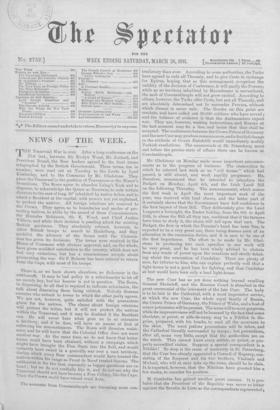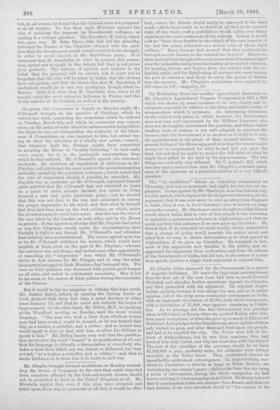M. Gambetta has gained another great success. It is pro-
bable that the President of the Republic was never so bitter against the Scrutin do Liste as the correspondents represented ;
but, at all events, he found that his Cabinet were not prepared to go all lengths. No less than eight Ministers opposed the idea of resisting the measure by Government influence, or making it a Cabinet question'. The President, M. an5vy, there- fore, gave way. M. Jules Ferry, who had led the minority, informed the Bureau of the Chamber charged with the ques- tion that the Government would remain neutral in the struggle, in order to avoid discord in the Republican party. It is rumoured that M. Gambetta, in order to procure this conces- sion, agreed not to speak in the debate, but that is not prima facia probable. The balance of opinion now inclines to the belief that the proposal will be carried, but it must not be forgotten that the vote will be taken by ballot, that the electors have not spoken, and that the latent idea that M. Gambetta, if unchecked, would go to war, has prodigious though silent in- fluence. Still, it is clear that M. Gambetta does, when at all roused, wield the most extensive influence in France, and this in the interior of the Cabinet, as well as in the country.



































 Previous page
Previous page